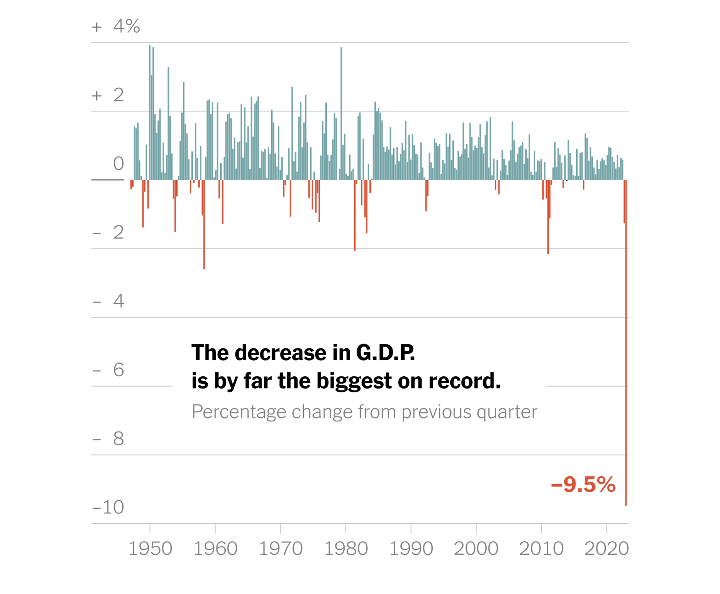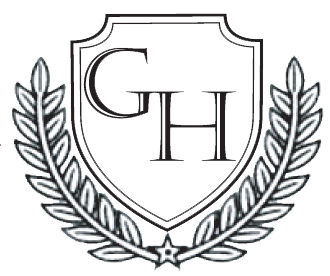GDP Down 9.5%; US Economy at Its Worst – The New York Times

RIGHT NOW Consumer spending plummeted in the second quarter, but not across the board.
Here’s what you need to know:
- The U.S. economy’s contraction in the second quarter was the worst on record.
- 1.43 million filed new state unemployment claims last week.
- The German economy had its biggest slump in 50 years.
- Stocks drop as economic numbers highlight pandemic’s toll.
- “Coronabeards” aside, Procter & Gamble saw strong sales.
The U.S. economy’s contraction in the second quarter was the worst on record.
Economic output fell at its fastest pace on record last spring as the coronavirus pandemic forced businesses across the United States to close their doors and kept millions of Americans shut in their homes for weeks.
Gross domestic product — the broadest measure of goods and services produced — fell 9.5 percent in the second quarter of the year, the Commerce Department said Thursday. On an annualized basis, the standard way of reporting quarterly economic data, G.D.P. fell at a rate of 32.9 percent.
G.D.P. shrank $1.8 trillion in the second quarter.
The collapse was unprecedented in its speed and breathtaking in its severity. The only possible comparisons in modern American history came during the Great Depression and the demobilization after World War II, both of which occurred before the advent of modern economic statistics.
Unlike past recessions, this one was a result of a conscious decision to suspend economic activity to slow the spread of the virus. Congress pumped trillions of dollars into the economy to sustain households and businesses, limit long-term damage and allow for a rapid rebound.
The plan worked at first. In recent weeks, however, cases have surged in much of the country. Data from public and private sources indicate a pullback in economic activity, reflecting consumer unease and renewed shutdowns.
“In another world, a sharp drop in activity would have been just a good, necessary blip while we addressed the virus,” said Heather Boushey, president of the Washington Center for Equitable Growth, a progressive think tank. “From where we sit in July, we know that this wasn’t just a short-term blip.”
Source: New York Times — Ben Casselman, July 30, 2020
